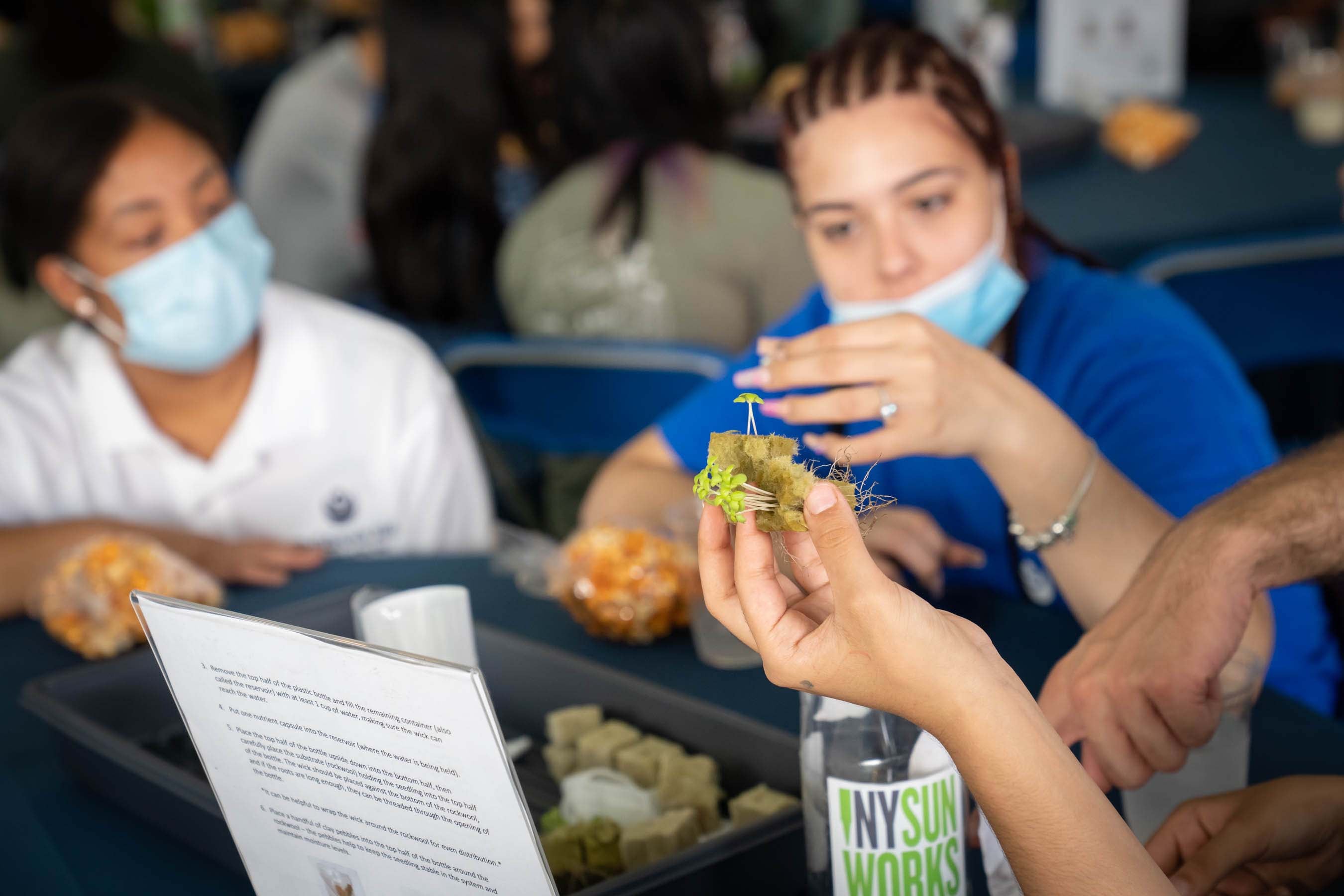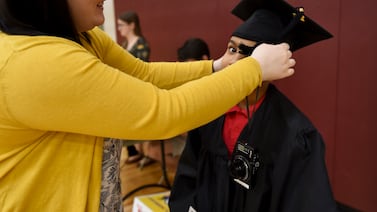This story was updated to reflect the new deadline.
New York City extended the deadline for its Summer Youth Employment Program, or SYEP, which provides paid jobs and career exploration programs for young people ages 14-24.
Young people have until April 14 to apply, officials announced Friday.
This year marks the $236 million program’s 60th year and will again be open to 100,000 young people – making it the largest public youth jobs program in the nation. The program will run between July 5 to Aug. 12 and from July 12 to Aug. 19.
One new feature this year is an effort to pair LGBTQ youth with affirming jobs, though specifics are scarce. Officials said they’re still working on the details based on how much interest they get, which can be marked on the application.
City officials also plan to nearly triple the number of slots for a small program that offers paid opportunities for youth who are undocumented.
How do I apply?
Youth can apply online here.
The types of programming and pay depends on the participant’s age. Dozens of community-based organizations oversee programming and find work sites that are willing to host youth workers.
What kinds of opportunities are available?
Younger youth, who are 14 to 15 years old, spend 12.5 hours a week gaining work readiness skills and learning about different careers. They also participate in project-based learning, which often involves finding a problem in the surrounding community and creating solutions. These teens are paid up to $700.
Youth ages 16 to 24 are paired with jobs through one of dozens of community-based organizations. Those organizations line up work sites, such as retailers or local businesses, that are willing to host youth workers for the summer. These young people are paid the city’s minimum wage rate of $15 an hour and work 25 hours a week – meaning they can make up to $2,250 by the end of the program.
Work sites range between public, private, and nonprofit organizations. Last year, a majority of jobs – 45% – were in the nonprofit sector. Private jobs were most commonly in retail, followed by day cares and camps, hospitality, tourism and health care, according to a report on last year’s jobs program published by the Department of Youth and Community Development, or DYCD, which oversees SYEP. Other opportunities included jobs in media and entertainment, business and finance, arts and recreation, real estate and technology.
In the public sector, about 4,600 youth worked last year for the education department, such as working with staff, in school kitchens, and in maintenance. In the public sector, nearly 4,000 youth last year worked for city agencies or mayoral offices. Nearly 120 youth worked for City Council members.
Applicants are asked to list their top three career choices and the provider they want to work with.
Am I guaranteed a spot?
No. The program has 100,000 open slots, but applications typically exceed that number. DYCD has received more than 126,000 applications so far, according to an agency spokesperson. Last year, the agency received roughly 167,000 applications.
Once applications are submitted, youth are chosen through a lottery system.
However, some young people who might be facing certain barriers to employment don’t have to go through the lottery system and can be directly referred to the jobs program through a city agency they’re working with. This includes youth who are homeless, in or aging out of foster care, are involved with the court system, and in families that are receiving preventative services through the city’s Administration for Children’s Services, such as support for mental health needs, substance abuse, and domestic violence.
Just like other young people, these youth also participate in either career readiness programs or are paired with jobs through a program called SYEP Emerging Leaders.
I am undocumented. Am I eligible for this program?
Generally, no. The program is only open to New York City youth who are legally eligible to work in the United States — an issue that has caused some advocates and lawmakers to push for more opportunities for undocumented immigrant youth. As of 2019, 77,000 undocumented youth ages 16-24 lived in New York City, according to estimates from the Migration Policy Institute.
However, a fraction of undocumented youth will have access to a small DYCD program this summer. Last year, the city agency quietly offered stipends to 282 high schoolers who “face obstacles” in applying to SYEP. The program, called SYEP Pathways, provided up to 60 hours of a paid work readiness and project-based learning program for students attending a handful of schools that already offered CareerReady, which is a year-round program that helps students gain career readiness skills.
This year, officials are hoping to expand that program to 750 children. Community organizations directly recruit youth for this program.
Because of federal regulations that limit how much you can pay someone without work authorization, students who participated in this small pilot were paid $552. Officials did not immediately explain how students can sign up for this summer.
Children’s Aid was one organization that oversaw programming for 25 teens in last year’s pilot program. They developed projects, “listened to presentations from a variety of professions, went on educational trips, and presented what they learned at the end of the summer,” said Sandino Sanchez, director of workforce development programs at Children’s Aid, in a statement.
While advocates have praised DYCD for offering some sort of opportunity for undocumented young people, they’ve also raised concerns that the pay is inequitable compared with other youth participating in SYEP. But there might be other, private options for undocumented youth where they can receive more money.
For example, an organization called Oyate plans to pair 60 undocumented youth this summer with jobs at local college campuses, said Lymarie Francisco, a project manager at the organization who works with young people. Those youth will get $500 Visa gift cards each week.
Oyate received 312 applications for the program, prompting them to recently close the application, according to organization officials.
Eilen, a 15-year-old girl who participated in Oyate’s inaugural jobs program last year, said her job at Fordham University helped her become more disciplined about forming a daily routine. Additionally, the $500 gift cards allowed Eilen — who moved to New York City from the Dominican Republic two years ago — to help buy things around the house as her mother prepared to move them to a new home. She was also able to buy a new cell phone and pay for a gym membership.
“I didn’t have to ask my mom for anything,” she said in Spanish.
Reema Amin is a reporter covering New York City public schools. Contact Reema at ramin@chalkbeat.org.






